During the winter months, when nature prepares for new life, Bulgarian tradition brings us a special holiday – Petlyovden (Rooster […]
St. George’s Day – A Celebration of Bravery, Spring, and Tradition in Bulgaria
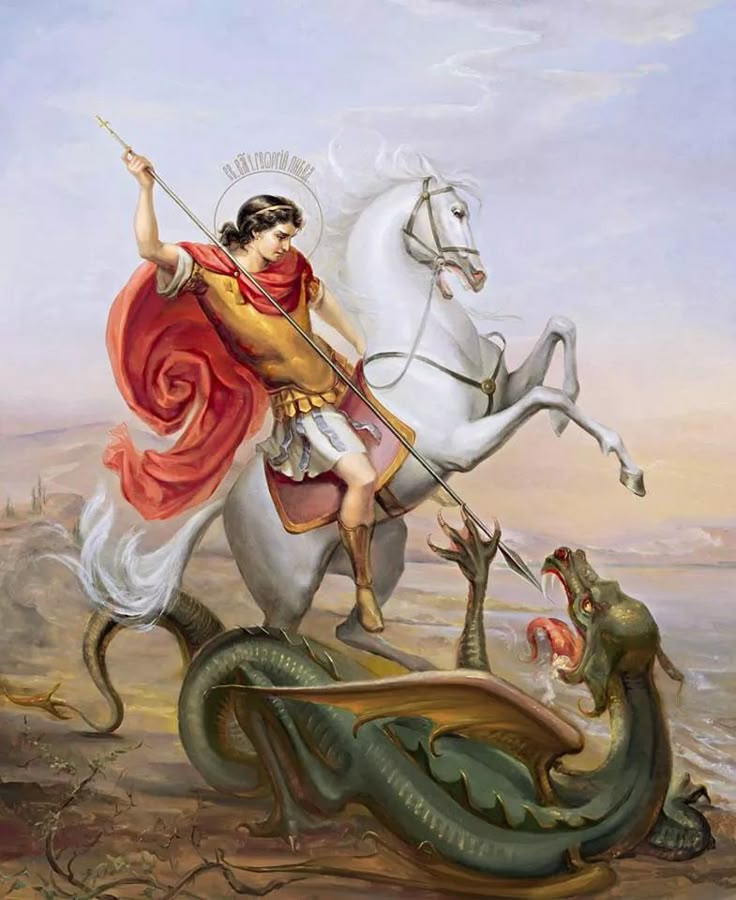
St. George’s Day (Gergyovden), celebrated on May 6, is one of Bulgaria’s most cherished holidays. It beautifully weaves together Christian faith, folk traditions, spring renewal, and national pride. In this article, you'll learn about the origins of the holiday, who celebrates their name day, the legend of St. George, traditional customs, and how this day is honored with official events like the military parade in Sofia. We'll also share festive food ideas for the holiday table.
History and Significance
St. George was born in Cappadocia, in modern-day Turkey. He joined the Roman army at a young age and quickly rose through the ranks due to his bravery and skill. Influenced by his Christian mother, George embraced Christianity and opposed the persecution of Christians by Emperor Diocletian. For standing firm in his faith, he was tortured and executed, becoming a Christian martyr and a symbol of courage and devotion.
He is revered as a protector of shepherds, farmers, and soldiers, and in Bulgarian folklore, he is associated with fertility, victory, and the arrival of summer.
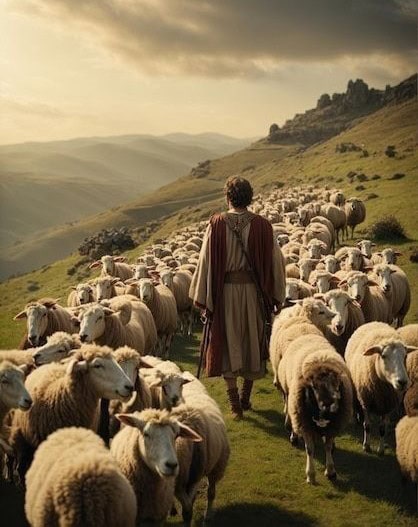
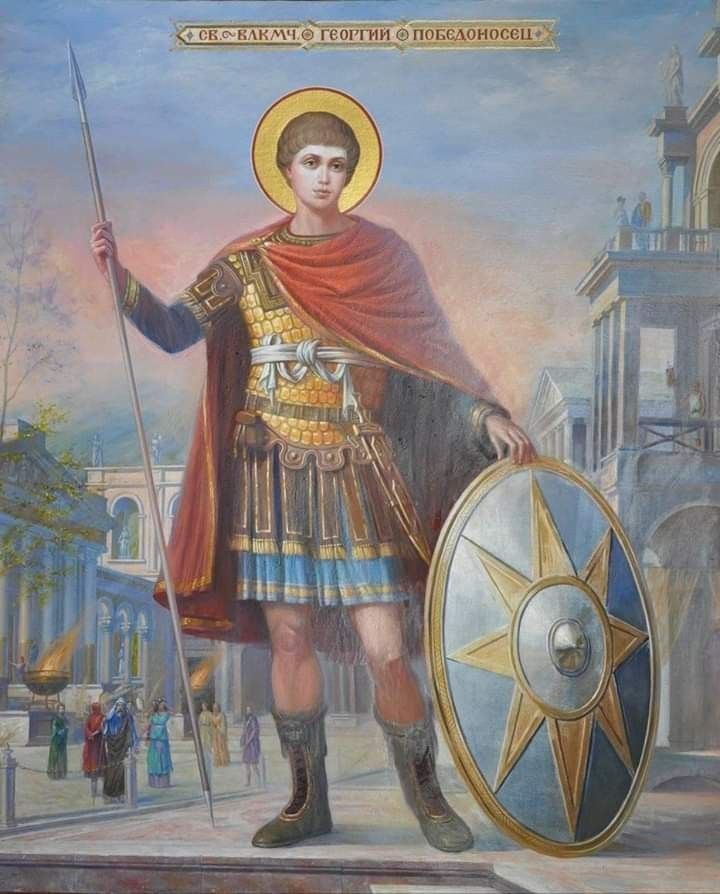
The Legend of St. George
A famous legend tells of a terrifying dragon that lived near Beirut and terrorized the town. To appease the creature, locals began sacrificing their children. When it was the turn of the king’s daughter, a young knight appeared on a white horse. It was St. George. With his spear, he defeated the dragon and saved the princess. Inspired by his bravery, the townspeople converted to Christianity. This image of St. George slaying the dragon remains a powerful symbol of triumph over evil in Orthodox iconography.

Name Day Celebration
Over 180,000 Bulgarians celebrate their name day on May 6, including those named Georgi, Gergana, Galia, Ginka, Gosho, Gyurga, and others. These names derive from the Greek “Georgios,” meaning “farmer” or “earth-worker,” reflecting both Christian and folk associations with fertility and the land.
Customs and Rituals
The holiday is associated with many customs that are observed from early dawn. One of the most beautiful rituals is bathing in morning dew. It is believed that the dew of St. George's Day is magical and healing, bringing health and fertility. People, men, women and children, go out into the fields or to natural springs before sunrise and wash themselves or roll in the grass in the hope of health and luck.
After the ritual washing, fresh herbs and flowers are gathered. They are used to decorate the doors of houses, stables and pens, as well as to make wreaths that are placed on heads or kept throughout the year. It is believed that herbs picked on this day have particularly strong healing properties.
In agricultural areas, farmers bury the first red Easter egg in their fields to bring about fertility. This is done in the belief that the crops will be healthy, the land blessed, and the harvest bountiful.
The St. George's Day meal is rich and festive. At its center is traditionally a roasted lamb, as a symbol of purity, renewal and blessing. The meat is served with green salads, fresh onions, garlic, kozunak and various types of bread. Dishes such as lamb liver sarma, lamb soup or roasted leg of lamb with herbs are also popular.
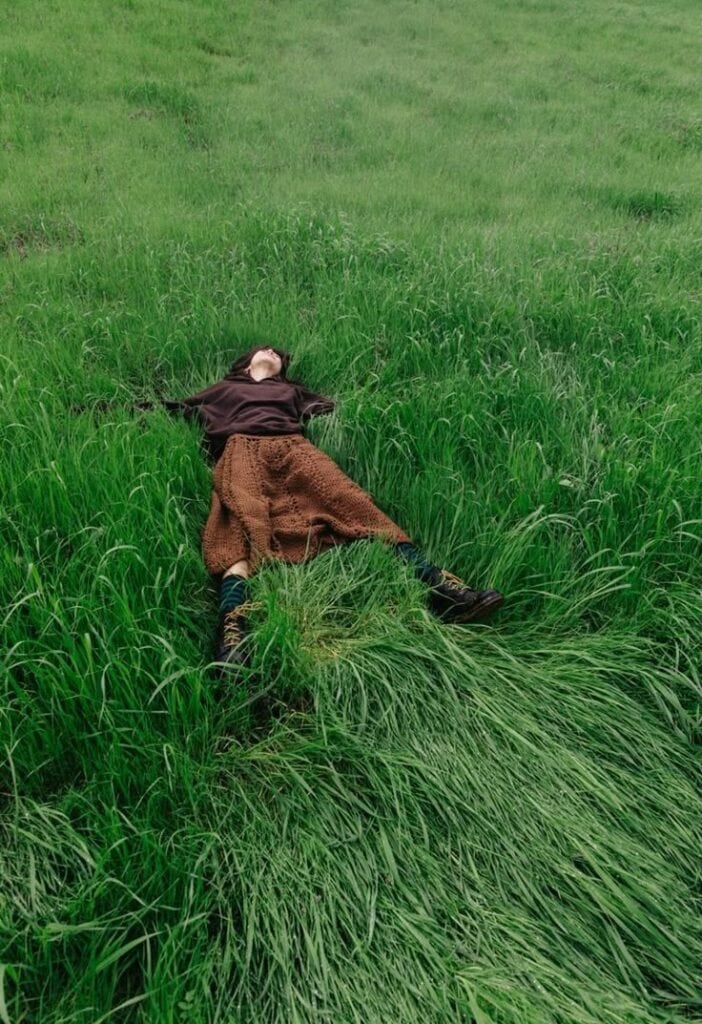


St. George's Day as a Day of Courage
Besides being a religious and folk holiday, St. George's Day is also the official Day of Bravery and the Bulgarian Army. This tradition has deep historical roots and was revived after the fall of communism. Today, on May 6, a solemn military parade is organized in Sofia, which brings together numerous citizens and officials.
The center of the event is Knyaz Alexander I Square, where a ceremony of raising the national flag, consecration of the battle flags and a parade of military units takes place. The parade includes marches of guardsmen, demonstrations of military equipment, air force flyovers and special greetings from the Supreme Commander-in-Chief - the President of the Republic.
Similar celebrations are held in other cities across the country, with wreath-laying, concerts, demonstrations, and open houses at military units. It is a day to pay tribute to Bulgarian soldiers and all those who have given their lives for their homeland.
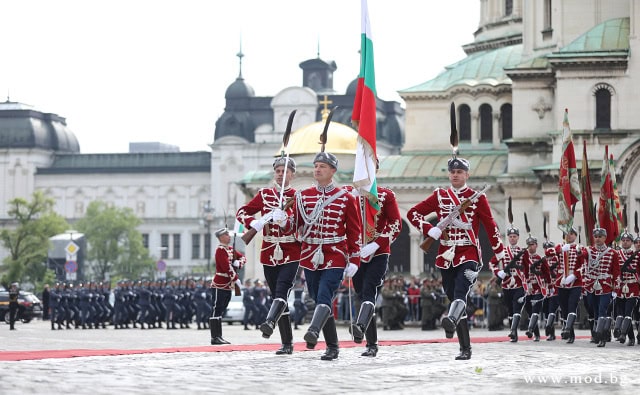
Conclusion
St. George's Day is a holiday that unites spirituality, history, nature and the power of tradition. It is a day when people turn to themselves, to the land and to their loved ones. Its symbolism – from the awakening of nature to the bravery of the soldier – reminds us that good always has the power to win. By honoring St. George and celebrating St. George's Day, we touch the deep roots of Bulgarian identity and pass on the living memory of the people.
